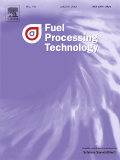
FUEL PROCESSING TECHNOLOGY
Scope & Guideline
Transforming energy challenges into sustainable solutions.
Introduction
Aims and Scopes
- Fuel Production and Conversion Technologies:
Research in this area focuses on methods for producing fuels from various feedstocks, including biomass, waste materials, and fossil fuels. This includes studies on pyrolysis, gasification, hydrothermal liquefaction, and chemical looping processes. - Catalyst Development and Optimization:
This scope includes the design, synthesis, and characterization of catalysts for various fuel processing reactions. Research often emphasizes enhancing catalytic performance, selectivity, and stability under different reaction conditions. - Emission Control and Environmental Impact:
Studies addressing the emissions generated from fuel processing and combustion, including the development of technologies for reducing pollutants such as NOx, SOx, and particulate matter, are a critical focus. - Renewable Fuels and Sustainable Energy:
Research on alternative fuels, particularly biofuels derived from biomass and waste materials, is emphasized. This includes process optimization, lifecycle analysis, and sustainability assessments. - Advanced Characterization Techniques:
The journal also covers innovative analytical methods for characterizing fuels, catalysts, and emissions, which are essential for understanding the underlying mechanisms in fuel processing.
Trending and Emerging
- Chemical Looping Technologies:
Chemical looping processes are gaining traction for their efficiency in converting fuels while enabling CO2 capture. Research in this area focuses on optimizing oxygen carriers and reaction conditions. - Integration of Renewable Energy Sources:
There is a growing trend towards integrating renewable energy sources with fuel processing technologies to enhance sustainability and reduce reliance on fossil fuels. - Advanced Materials for Fuel Processing:
The development of new materials, including nanostructured catalysts and advanced carbon materials, is on the rise, aimed at improving efficiency and selectivity in fuel processing applications. - Life Cycle Assessment and Sustainability Metrics:
Research focusing on the environmental and economic impacts of fuel processing technologies is increasingly important, with studies emphasizing lifecycle assessments to guide policy and innovation. - Biomass Valorization and Waste-to-Energy Technologies:
Emerging themes include innovative approaches to biomass valorization and the conversion of waste materials into valuable fuels and chemicals, reflecting the push towards a circular economy.
Declining or Waning
- Traditional Fossil Fuel Technologies:
Research focused solely on conventional fossil fuel extraction and processing methods has seen a decline, as the industry shifts towards more sustainable alternatives. - Simple Combustion Studies:
Studies that merely focus on combustion characteristics without integrating advanced emission control or fuel optimization strategies are becoming less frequent, as researchers aim for comprehensive approaches. - Static Catalyst Studies:
Research that only examines the performance of catalysts under static conditions without considering the dynamic operational environments has decreased, as there is a growing emphasis on real-world applicability.
Similar Journals
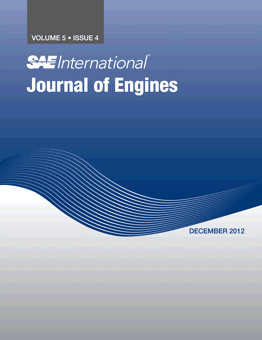
SAE International Journal of Engines
Unleashing Insights into Engine Efficiency and EmissionsSAE International Journal of Engines, published by SAE International, serves as a leading platform in the field of automotive engineering and fuel technology. Established in 2008, this journal has quickly gained recognition, achieving a Q2 ranking in Automotive Engineering and a Q3 ranking in Fuel Technology as of 2023. With the journal's ongoing commitment to advancing the understanding of engine technologies, it encompasses a diverse range of topics including engine performance, emissions, fuels, and innovative technologies driving the automotive industry. Researchers and professionals can benefit from the high-quality peer-reviewed articles that the journal features, while the comprehensive content serves as an invaluable resource for students engaged in automotive studies. Although it does not currently offer open access, the journal's credibility is further reinforced by its respectable Scopus rankings, indicating its significant impact within the academic community. For anyone seeking to stay at the forefront of engine research and automotive advancements, the SAE International Journal of Engines is an essential resource.

INTERNATIONAL JOURNAL OF ENERGY RESEARCH
Empowering innovation in energy research and technology.INTERNATIONAL JOURNAL OF ENERGY RESEARCH (ISSN: 0363-907X; E-ISSN: 1099-114X), published by Wiley-Hindawi, stands at the forefront of energy research, offering a scholarly platform pivotal for advancing knowledge in the fields of energy engineering, nuclear energy, fuel technology, and renewable energy systems. With an impressive Q1 and Q2 ranking across several categories as of 2023, this journal reflects a commitment to high-quality, peer-reviewed research that addresses both theoretical and practical challenges in the energy sector. Now an Open Access journal since 2023, it enhances accessibility and dissemination of cutting-edge research to a global audience. Located in the United Kingdom, with an active publication history dating back to 1977, the journal aims to contribute to sustainable energy solutions and innovative technologies. Researchers, professionals, and scholars will find valuable insights and discussions here, bridging gaps in energy research and policy-making.
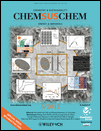
ChemSusChem
Leading the Charge in Chemical Engineering for SustainabilityChemSusChem is a premier interdisciplinary journal, published by WILEY-V C H VERLAG GMBH, that focuses on the critical fields of Chemical Engineering, Energy, Environmental Chemistry, and Materials Science. Since its inception in 2008, the journal has consistently maintained a Q1 ranking across multiple categories, highlighting its role as a vital resource for researchers and professionals dedicated to advancing sustainable chemical processes and technologies. With an impressive impact factor, it ranks 12th in General Chemical Engineering and is highly regarded within its scopes, indicating the journal's commitment to publishing high-quality, innovative research that addresses global challenges in energy and environmental sustainability. Though it operates on a subscription model, its contributions are essential for those in academia and industry seeking cutting-edge developments in sustainable chemistry. As it approaches its convergence span through 2024, ChemSusChem continues to shape the future of sustainable chemistry, making it a must-read for students, researchers, and practitioners alike.
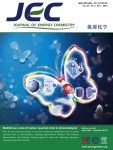
Journal of Energy Chemistry
Unlocking the Potential of Energy TechnologyThe Journal of Energy Chemistry, published by Elsevier, is a premier international journal that has established itself at the forefront of research in the fields of electrochemistry and energy technology. With an impressive impact factor, this journal is classified in the Q1 quartile across multiple categories including Energy Engineering and Power Technology, Fuel Technology, and Electrochemistry, underscoring its significant contribution to advancing knowledge and innovation in energy systems. Based in the Netherlands, the journal offers open access to its cutting-edge research, allowing for broad dissemination and engagement among researchers, professionals, and students alike. The scope of the journal spans crucial topics from chemical energy storage to sustainable energy solutions, making it an essential resource for those looking to understand and contribute to the evolving landscape of energy chemistry.
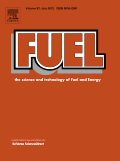
Fuel
Charting New Frontiers in Fuel TechnologyFuel is a premier international journal published by Elsevier Science Ltd, showcasing critical advancements and insights in the fields of chemical engineering, energy engineering, power technology, and organic chemistry. With a significant history dating back to 1922 and continuous publication from 1970 to 2025, Fuel holds an impressive position in the academic community, reflected in its top-tier rankings—Q1 in multiple categories including Fuel Technology and Chemical Engineering for the year 2023. This journal is dedicated to exploring innovative research and application of fuel technologies, driving forward the dialogue on sustainable energy solutions. Researchers and professionals alike will find Fuel to be an essential resource, providing access to high-impact articles that contribute to advancements in methodologies and applications, while navigating the complexities of global energy challenges.

ATOMIC ENERGY
Catalyzing collaboration in the nuclear research community.ATOMIC ENERGY is a distinguished journal published by SPRINGER, focusing on pivotal advancements and research within the field of Nuclear Energy and Engineering. With an ISSN of 1063-4258 and an E-ISSN of 1573-8205, this journal has been a critical resource since its inception in 1956, serving both historic and contemporary scientific inquiries into nuclear technologies. Currently positioned in Q3 of the Nuclear Energy and Engineering category, ATOMIC ENERGY ranks 49 out of 77 in Scopus, representing a percentile of 37%, highlighting its relevance in the research community. While it is not an open access journal, it continues to draw a diverse readership eager to engage with the latest findings and innovations in nuclear science. The journal’s objectives include fostering collaborative research, sharing expertise, and addressing contemporary challenges in nuclear energy. As such, ATOMIC ENERGY remains an essential platform for researchers, professionals, and students alike, contributing significantly to the ongoing dialogue in the field.

Fuels
Empowering a Greener Tomorrow through Fuel ScienceFuels is a premier open-access journal published by MDPI, focusing on the multifaceted field of fuel science, technology, and applications. Since its inception in 2020, this journal (E-ISSN: 2673-3994) has rapidly become a vital resource for researchers, professionals, and students engaged in the exploration of sustainable fuel alternatives, combustion technologies, and energy conversion processes. Located in Basel, Switzerland, Fuels aims to disseminate high-quality research that not only advances academic understanding but also addresses real-world energy challenges. By embracing an open-access format, it ensures that significant findings are readily available to the global scientific community, helping to foster collaboration and innovation in the transition to cleaner energy solutions. With an emphasis on interdisciplinary research and practical applications, Fuels is poised to be a leading journal that shapes the future of energy technologies.

Catalysts
Elevating the Science of Catalysis through CollaborationCatalysts is a leading academic journal in the field of catalysis, published by MDPI since 2011 and well-regarded for its commitment to open access publishing. Based in Switzerland, this journal delivers innovative research and reviews that span various aspects of catalysis, from heterogeneous and homogeneous catalysis to the development of novel catalytic systems. With a commendable impact factor and a notable Q2 ranking in both Catalysis and Physical and Theoretical Chemistry categories, Catalysts plays a critical role in advancing the scientific discourse in these fields. The open-access model ensures that all research articles are readily accessible to researchers and professionals worldwide, fostering collaboration and accessibility to high-quality scientific literature. As the journal continues to publish cutting-edge studies up to its convergence in 2024, it remains an essential resource for anyone involved in catalysis research, from seasoned professionals to emerging scholars.
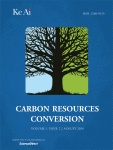
Carbon Resources Conversion
Exploring the Frontiers of Carbon Resource ScienceCarbon Resources Conversion is a prominent interdisciplinary journal that focuses on the innovative aspects of carbon resource utilization, aiming to advance research and applications in catalysis, fuel technology, and materials science. Published by KEAI PUBLISHING LTD, this Open Access journal, established in 2018, has rapidly developed a reputation for its high-quality research, evident from its impressive quartile rankings in 2023, including Q2 in Catalysis and Q1 in both Fuel Technology and Materials Science (miscellaneous). With its dedicated editorial board and rigorous peer-review process, Carbon Resources Conversion serves as an essential platform for researchers, professionals, and students striving to address contemporary challenges in energy and materials sustainability. The journal's strong Scopus rankings reaffirm its influence and accessibility within the scientific community, making it a vital resource for advancing the knowledge and application of carbon resource conversion processes.

TRANSACTIONS OF TIANJIN UNIVERSITY
Championing high-quality contributions in a dynamic academic landscape.TRANSACTIONS OF TIANJIN UNIVERSITY, published by SpringerNature, is a premier journal in the field of multidisciplinary research, boasting an impressive Q1 ranking and placing within the top 93rd percentile of its category according to Scopus. With an ISSN of 1006-4982 and E-ISSN of 1995-8196, this journal facilitates insightful and innovative contributions that span various disciplines, making it a vital resource for academics and professionals alike. Established in 2004, the journal continues to thrive with a commitment to advancing knowledge and fostering collaboration in scientific inquiry. TRANSACTIONS OF TIANJIN UNIVERSITY aligns with global research trends and offers a platform for the dissemination of high-quality research findings, promoting interdisciplinary approaches to solving complex problems. Located in China, its influence extends well beyond national borders, appealing to a diverse readership eager to explore the latest advancements and discussions in the multidisciplinary arena.